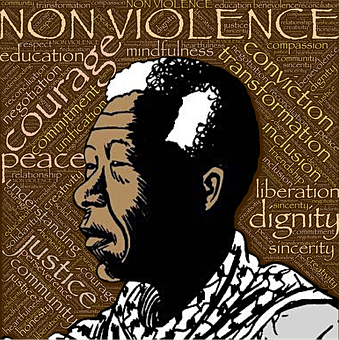“Can you please tell me, Mr. Stenorious, how many did you torture? How many did you harm for the crime of being black?” Judge Mabulu bowed his head to look out over his reading glasses. It looked like a strange gesture. It looked like he was giving deference and respect. And there was a hint of a smile on his face. He had learned this from Desmond Tutu. Be calm. Act as if you are delighted and grateful to be receiving information about crimes against humanity. Crimes against Blacks during the terrible history of South Africa.
Mr. Stenorious had his jaw clenched. He took a sip of water from the glass sitting on the table across from the panel of judges.
“I can’t recall.” His voice had a hard edge. Like it was a weapon that could chisel ice.
Mabulu nodded. “Would you say many?”
Mr. Stenorious leaned into the microphone. “I would say many.”
“Do you recall names?”
“The names would be in the records.”
“Many records have disappeared. You must remember a few names.”
Mr. Stenorious sighed and then stated around ten names. A woman from the back of the court started crying. “Did you kill my daughter she screamed?”
Mr. Stenorious did not look back. Judge Mabulu asked the woman to keep calm.
“Why are you here, Mr. Stenorious? Why are you seating in front of the Truth and Reconciliation Court?” Judge Mabulu still had that slightly amused look on his face.
“To…” Mr. Stenorious drank more water. “To ask for forgiveness…mercy…to set the record straight and allow me to continue to be a free man.
“Mercy.” Judge Mabulu smiled then. “You want mercy from this court. Well, Mr. Stenorious you will have to be very detailed in your statements. We need the complete truth. Not vague answers. We need to know the crimes of the past. Only confession heals wounds. Unburden yourself.”
And Mr. Stenorious, a white man with a deep red flush to his face, spoke of his crimes as a member of the police during Apartheid. His voice was monotone. His face was devoid of emotion.
Judge Mabulu listened intently but he kept thinking of one thing. This was the opposite of the Nuremberg Trials. But what could South Africa do? Whites and blacks had to live together and find a peace. The atmosphere in the streets was combustible.
When Mr. Stenorious was done after two hours Judge Mabulu said he would consider the request. The court adjourned.
Mr. Stenorious walked outside the court to his car and a white woman approached him. She mumbled something in Afrikaans and then stabbed him. Then in English, she said, “I’m ashamed.”
That’s the problem with the truth. Confession can cause shame and shame is something so powerful that it can cripple a person and a country. The woman then slit her throat with a knife. Black people observed the incident and merely walked past the two white people laying on the ground.
THE END
